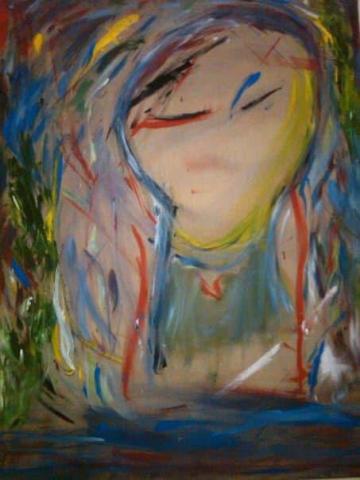
Love Demands We Speak: A Call to Break the Silence Around Suicide
Today marks six years since my dad died by suicide.
In the months following his death, I wrote an article about the weight of suicide, the grip of shame, and the power of silence. It was my attempt to make sense of something that felt impossible to understand. I wrote about love, pain, and the brokenness of the systems that failed him. Then, four years after his death, suicide rocked our lives again, this time through the death of my deepest love, Heidi. Her loss cracked open parts of me I didn’t know could still break. And so, I've returned to that original piece. I’ve revised it, expanded it, and allowed it to grow alongside the grief and clarity that time has given me.
This story isn’t just about death. It’s about love. It’s about speaking the truth, even when it hurts. Especially when it hurts...
I was raised by a powerful village: my mother, grandmother, and three uncles. My father wasn’t present during my early years. He struggled with alcoholism and didn’t come into my life until I was a teenager. But when he got sober, he showed up wholeheartedly. From then on, I saw him every Sunday, we talked all the time, and I never once doubted that he loved me deeply and unconditionally. I was his only child, but he embraced my younger sister, as if she were his own. She called him “Daddy Bill” as soon as she could speak, and he loved her just as fiercely.
When I moved to North Carolina for college, I found myself in a bar in Greensboro one Sunday, of course watching a Steelers game. An older man struck up a conversation when he heard I was from Pittsburgh. I mentioned that my dad had played softball and he lit up: “You’re Billy Barie’s daughter!” This stranger knew and admired my father. It helped that I look just like him! My dad had that kind of impact: everyone loved him.
He was the oldest of seven and always looked out for others, often giving even when he had little for himself. He was blue-collar, hardworking, and proud. After I graduated and started earning more than he did, he still insisted on sending me a little money every month. “Just to help,” he’d say, even when I told him I was doing fine.
He had been healthy most of his life; an athlete who played baseball and softball well into his fifties, though he grumbled about being bumped into the senior league. Then, seemingly out of nowhere, everything changed. His health declined rapidly. Chronic pain took over his body. Some days, he couldn’t even put on shoes. He lost his job when he could no longer be on his feet all day, and reluctantly applied for disability. It took over two years to get approved. During that time, he stayed with his siblings, refusing my many invitations to move to North Carolina. Pittsburgh was his home and he wasn’t leaving.
He underwent surgery after surgery; some to fix mistakes from earlier ones. I never believed he was getting the quality care he deserved, but he was too proud to let me help him navigate the system or advocate for him, even though that was literally my profession. He was shuffled between doctors, his treatment dictated by what disability would cover, not what was truly best for him.
Living in constant pain, he ended up on multiple medications and sank into depression. But in all of that, he never went back to drinking, not once in 27 years of sobriety. That, to me, was heroic. Still, he began taking too many pain pills. I don’t think he saw it as a relapse. He was in real, physical pain. I could hear it in his voice, even from hundreds of miles away. We all begged him to seek help, but he wouldn’t.
In May 2019, he died by suicide: an overdose of those pain pills. He was just 63.
My dad adored his grandchildren, his siblings, his many nieces and nephews. He never forgot a birthday or a name, no matter how many there were. He lived for Pittsburgh sports and would text me in ALL CAPS throughout every Steelers game. But he also carried a belief that he must never be a burden. We never saw him that way. He was just exhausted: from the pain, the bureaucracy, and the fight.
Some of my family asked me not to talk about his death. I understand their grief and their fear, especially the shame that often surrounds suicide. But my father raised me to speak up. He admired my boldness. I know he was proud of me and the work I do as a community organizer, even when we argued about politics. When I came out as queer in 1995, he barely blinked: “So, you’ll find Princess Charming instead of a Prince. Who cares.” That was my dad. And so he had to know: I would talk about his suicide, too.
Four years after losing my father, I was devastated again. My first love, my most fierce love, Heidi, also died by suicide. And while I had feared that moment for years, nothing could prepare me for the pain of it. I held out hope that she would find peace in sobriety, in treatment, in a life rebuilt. I imagined her one day stepping into joy and stability, maybe even growing old with me, once the chaos had quieted. But that’s not how her story ended.
In 1999, when I first met Heidi, we were barely adults; just 18 and 21. But the pull between us was immediate, magnetic, impossible to ignore. She was a whirlwind of raw energy and open-heartedness. Loving her felt like jumping into a wave; beautiful, overwhelming, sometimes scary, always exhilarating. We didn’t know what we were doing, but we dove in anyway and held on tight. For ten years, we built a life around that love. And even after we ended our relationship, even as we grew into separate lives, we remained connected. Our friendship endured, and so did our love; different, but always strong.
Heidi was one of those rare people who made the world more colorful just by being in it. She was complex; layered with brilliance, contradiction, beauty, and struggle but she was never fake. There was no artifice with her. She lived wide open. Her emotions were always right there on the surface, her love overflowing, her laughter echoing. She had the best smile and a laugh that came from deep in her gut and made you laugh even if you didn’t know what was funny.
She was passionate about everything: art, music, animals, Duke basketball, Yankees baseball, and, thanks to me, she proudly cheered for the Pittsburgh Steelers! She could find the perfect song lyric for any moment, usually from Ani DiFranco or Tom Waits or some obscure indie band she had discovered before everyone else. The first thing she ever said to me was, “This coffee is just water dressed in brown,” quoting Ani. I didn’t know yet what I was in for but I immediately felt she was someone I needed to know.
Losing her was like losing a piece of my own body. I had been bracing for it because she had struggled for so long, and I had walked with her through many past attempts. Still, the finality of it hit like a tidal wave. I was shocked but not surprised. I loved her as unconditionally as I possibly could. I tried to hold space for her pain, even when I didn’t understand it. I believe she knew she was deeply loved, even when she couldn’t hold onto it. But her pain finally silenced all the love that surrounded her and that truth shatters me.
Heidi was the kind of person who, even in her struggles, gave so much. She had a huge heart and a unique way of seeing the world. She was thoughtful in the smallest ways: a handwritten note, a song burned onto a CD, a perfectly timed joke when you needed it most. She made people feel known, seen, held. And even when her own world was falling apart, she never stopped loving with intensity and care. That’s what I carry with me: the way she loved. Messy, imperfect, radiant, honest.
If I’m being honest, I always thought we’d find our way back to each other. I imagined us reconnecting once we had both healed enough, after my kids were grown, after she found sobriety, after life had softened its edges. I thought we’d sit on a porch someday, laughing over music and memories, marveling at what we’d survived. I thought we’d get a second chance. But her pain took her away from all of us. And there is a Heidi-shaped space in my heart that will never be filled.
One of the gifts of our relationship was how much joy we found in each other, even in hard times. That’s why, alongside the grief, I also created a “Heidi Playlist,” a reminder to dance and sing. In the kitchen. In the car. At the grocery store. With my kids. With the goats. Because that’s how Heidi lived: loud, loving, laughing. Dancing through the darkness, even when it caught up to her in the end.
When I first wrote about my father’s suicide, I didn’t yet know how this story would expand—how suicide would carve deeper and deeper into my life. Heidi’s death was another kind of earthquake, another fracture I now carry. And still, I show up every day for the people I love. I listen. I sit in silence. I say, “You are so loved, so worthy, so amazing, so beautiful, so smart, so kind.” I say it over and over, even when they don’t believe it yet.
I will not be silent. I will not be ashamed. I have also walked through the dark; struggling with depression and anxiety, surviving two suicide attempts in my twenties. I was lucky. I had access to care. I had people who refused to let me go. That access should not be a privilege. It should be a right.
And now, as I raise children who carry the legacy of these losses, I speak up for them too. We deserve better. We need better. Suicide is not a moral failing. It’s a public health crisis. It’s what happens when pain overwhelms possibility, when systems fail, when care comes too late or not at all.
As Dr. Christine Moutier from the American Foundation for Suicide Prevention says: “Suicide is a health outcome... If you had five family members who’d died of heart attacks, you’d do everything you could to keep healthy.” That’s how I live now—with vigilance, compassion, and fierce honesty.
According to the National Alliance on Mental Illness (NAMI), 46% of people who die by suicide had a known mental health condition. Risk factors also include:
- A family history of suicide
- Substance abuse
- Intoxication—more than 1 in 3 people who die by suicide are under the influence at the time
- Access to firearms
- Chronic or serious illness
- Gender—men are nearly 4 times more likely to die by suicide
- Trauma, abuse, prolonged stress
- A recent loss or crisis
There is no tidy way to end this story. Because it doesn’t end. Grief is not linear. Healing is not a straight line. Love does not die with the people we lose. I will carry my dad and Heidi with me for the rest of my life. And because of the love they gave me, I will keep fighting for better care, for open conversations, for a world where no one has to suffer in silence.
National Suicide Prevention Lifeline: 1-800-273-TALK
Free and confidential support 24/7 for people in distress, and the people who love them.
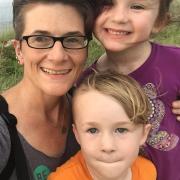
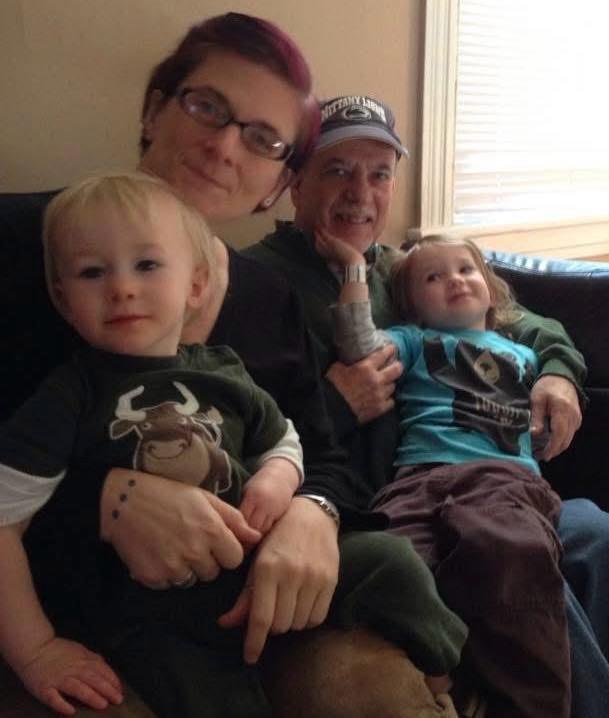
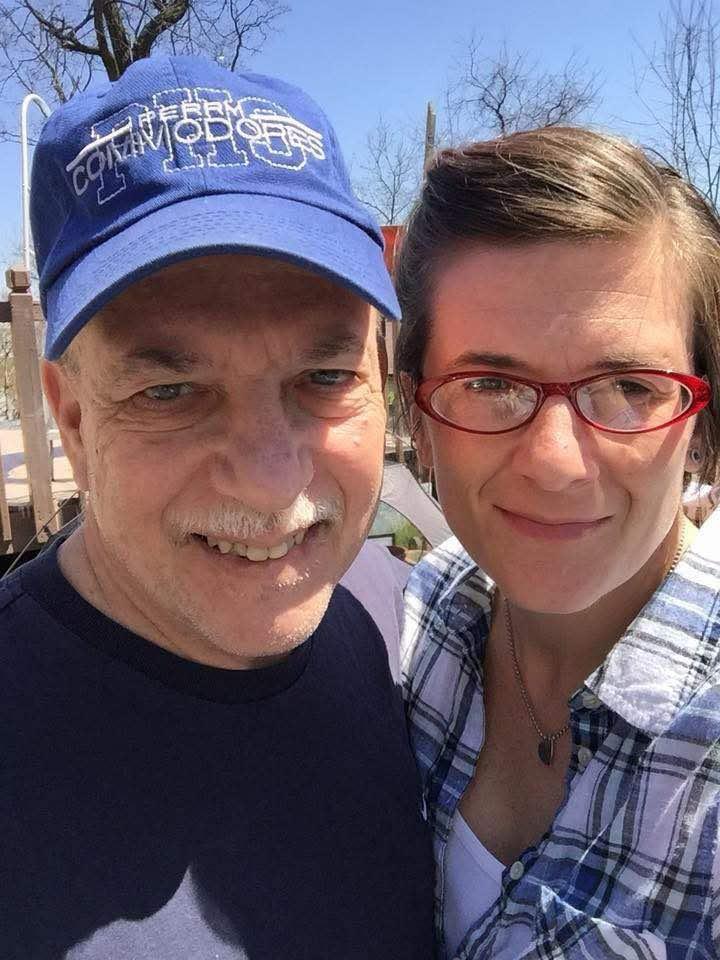
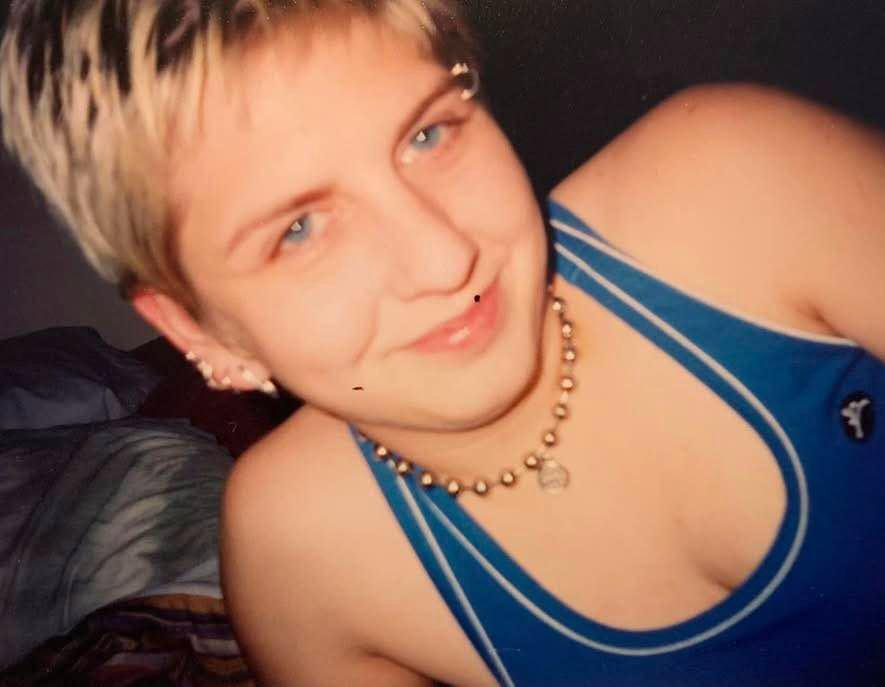


The views and opinions expressed in this post are those of the author(s) and do not necessarily reflect those of MomsRising.org.
MomsRising.org strongly encourages our readers to post comments in response to blog posts. We value diversity of opinions and perspectives. Our goals for this space are to be educational, thought-provoking, and respectful. So we actively moderate comments and we reserve the right to edit or remove comments that undermine these goals. Thanks!